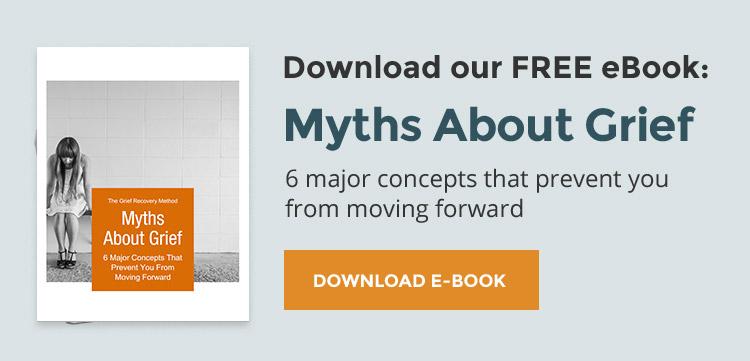The loss of a pet is very much a grieving experience. The emotional bonds formed with a pet often exceed the bonds formed with other people in a person's life. Many people never think of them as pets, but rather very special companions, best friends or a family member. A pet is the confidant with whom you can share everything without fear that they will repeat it to others. You never have to fear verbal analysis, criticism or judgment from your pet. Pets are there for you even when others walk away; the love experienced with a pet is often expressed as unconditional love and acceptance. When a pet dies, disappears or must be given away, the loss can be devastating.
I have seen this first hand more times than I can count. The only time I can remember seeing my father cry was after the death of his favorite cat. Like many pet owners, my parents explored medical treatments for their cat that were well beyond the actions they might have even taken for themselves.
A major problem pet owners face is how pet loss is an often discounted grief by society. It is frequently the case that friends and family members do not realize the depth of this emotionally discounted loss and fall back on the “myths” they learned in dealing with grief when trying to help. They will give the griever suggestions about why they shouldn't feel bad, which never really help them feel better. If anything, these suggestions encourage the griever to suppress and bury his or her emotional pain. The most common advice that is offered to pet owners is to replace the loss with a new pet. It is rare that a friend would ever tell someone who had lost a human family member is that the best way to deal with the situation is to “go out and get a new one,” yet they will suggest this to a grieving pet owner without a second thought. These friends and family members forget that a beloved pet is a “real” family member!

As grief and loss professionals, we have a very real opportunity to make a difference. Since we understand that grief is the normal and natural human reaction to any change or end that occurs in life, we also know that the loss of a pet can be an enormously emotional loss experience. We also recognize that most grievers have never learned anything of value in dealing with any type of loss they may have experienced. This is not only an opportunity to help this griever with the pain associated with their pet loss, it's also an opportunity to introduce to them to valuable tools available that can help them deal with the other emotional losses in their life as well.
We begin this process of assistance in the same way we would with any other loss situation. Once the griever shares with us that they lost a beloved pet, we ask, “What happened?” and simply listen. We don't offer the clichéd responses they have heard from others. We don't analyze, criticize or judge what we hear. We listen to them as they tell their story and let them see that we are emotionally touched by what they have to say. You will most likely be the first person that has responded to them in this way. You will probably be the first person who didn't discount their loss or turn this into an opportunity to make this all about their own personal pet loss story. In approaching this way, by creating a safe place to express their feelings, you have already identified yourself as different from anyone else. This will likely mean that they will be more receptive to listening to what you might have to say to help them.

As with any griever, people who have lost a pet are desperate for meaningful assistance. Like every other griever, they have found themselves disappointed that those they counted on to help them offered little or no emotional help. The fact that you listened, rather than trying to “fix” the problem, has given you instant credibility. Now is the time that we introduce the concept of taking action in the form of the “Grief Recovery Handbook For Pet Loss.”
What makes this book different from “The Grief Recovery Handbook” is that it is fully focused on pet loss. It assures them, at the outset, that grieving the loss of this special companion is very normal and natural; there is nothing about loosing a pet to feel ashamed of. The assignments focus strictly on the loss of pets, rather than reminding them of the other losses they have experienced. It's all about “completing their relationship” with their special friend, so that they can enjoy their fond memories of the lifetime they shared, rather than reliving those moments related to the loss alone. It allows them to take emotional action on this loss, which will put them in a far better situation with any future pet they may choose to later adopt. It gives them a chance to form a new and independent relationship with a new pet, rather than leaving them in the situation of “replacing” their loss.
Once they have successfully taken these actions, it will also open their eyes to the possibility of taking meaningful actions on other losses they may have experienced in their lifetime. The vast majority of people don't realize that there is any action plan available for dealing with emotional loss. Chances are they have a history of stuffing and discounting their feelings concerning the majority of losses they have experienced. Basically, they have given up hope for a better solution because it was never offered or envisioned by them. The fact that they have found success with this loss will help them see that elements of this same program might offer them a chance to take other Grief Recovery actions as well.
We have often said that grievers are among the most abused members of our society. Those closest around them, often without even realizing they are doing so, tend to offer useless suggestions how they can “get over it” or "replace the loss". As Grief Recovery professionals, you know that people never "get over" a loss, but they can learn the tools to recover from a loss, thereby transforming the quality of their life when taught the proper actions and tools. To be the person who can guide someone from grieving to recovery from their loss, with the correct information and actions, offer the hope for a better tomorrow and is a very special gift!

In thinking about what was covered in this article, you might want to read a previous article about the three most common things grievers hear about dealing with the loss of a pet.


























Add new comment